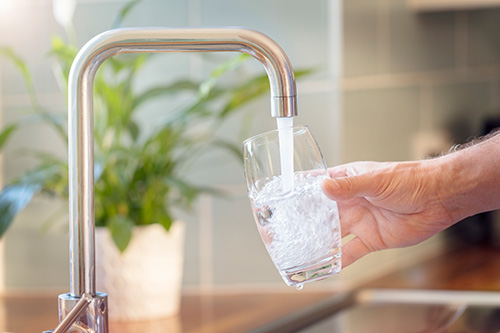
Plumbing is an essential aspect of any home or business, and it plays a crucial role in maintaining our health and well-being. From providing clean water to removing waste, plumbing systems are responsible for ensuring that our buildings are safe, hygienic, and comfortable. However, not all plumbing systems are created equal, and it’s important to be aware of how to keep your water safe and clean. In this article, we will discuss the importance of proper plumbing maintenance and how it can impact your health. This plumbing emergency often occurs due to frozen pipes, corrosion, or high water pressure and get emergency help right here.
- Water Quality
The quality of the water in your home or business is of paramount importance, as it can have a significant impact on your health. Contaminated water can contain a variety of harmful substances, such as bacteria, viruses, and chemicals, which can lead to illness, infections, and even disease.
To ensure that your water is safe and clean, it’s important to have regular water testing done by a professional. This can help to identify any potential problems and take the necessary steps to fix them. Furthermore, a professional plumber can also provide regular maintenance services, such as flushing the water heater, which can help to remove sediment and improve the overall quality of the water.
2. Drain Cleaning
Proper drain maintenance is another important aspect of keeping your water safe and clean. Drains can become clogged with debris, such as hair, grease, and soap scum, which can lead to slow drains or complete blockages. This can cause water to back up in the sink, shower, or toilet, leading to unpleasant odors and unsanitary conditions.
To prevent blockages and maintain proper drain flow, it’s important to have regular drain cleaning done by a professional. This can involve techniques such as snaking, hydro jetting, or augering, which can remove blockages and restore proper drain flow. Furthermore, a professional plumber can also provide regular maintenance services, such as cleaning, which can help to prevent blockages from occurring in the first place.
3. Backflow Prevention
Backflow prevention is another important aspect of keeping your water safe and clean. Backflow occurs when water flows in the opposite direction it’s supposed to, which can lead to contamination of the water supply. This can happen due to various factors, such as a change in water pressure or a malfunctioning valve.
To prevent backflow and maintain the integrity of your water supply, it’s important to have backflow prevention devices installed by a professional. These devices, such as check valves, can help to ensure that water flows in the correct direction, and they should be tested regularly to ensure that they are working properly.
4. Lead and Copper
Lead and copper are two common contaminants found in water systems. Exposure to lead can lead to serious health problems, especially in children and pregnant women. Copper exposure can lead to stomach and liver problems. It is important to have your water tested for lead and copper by a professional, and if any levels are found to be too high, a professional plumber can help to mitigate the problem.
5. Legionella
Legionella is a type of bacteria that can thrive in warm water environments, such as hot water tanks, hot tubs, and cooling towers. When inhaled, it can lead to a serious lung infection called Legionnaires’ disease. It is important to have your water tested for Legionella by a professional, and if any levels are found to be too high, a professional plumber can help to mitigate the problem.
In conclusion, proper plumbing maintenance is essential for maintaining the health and well-being of any home or business. From water quality, drain cleaning, backflow prevention, lead and copper.


